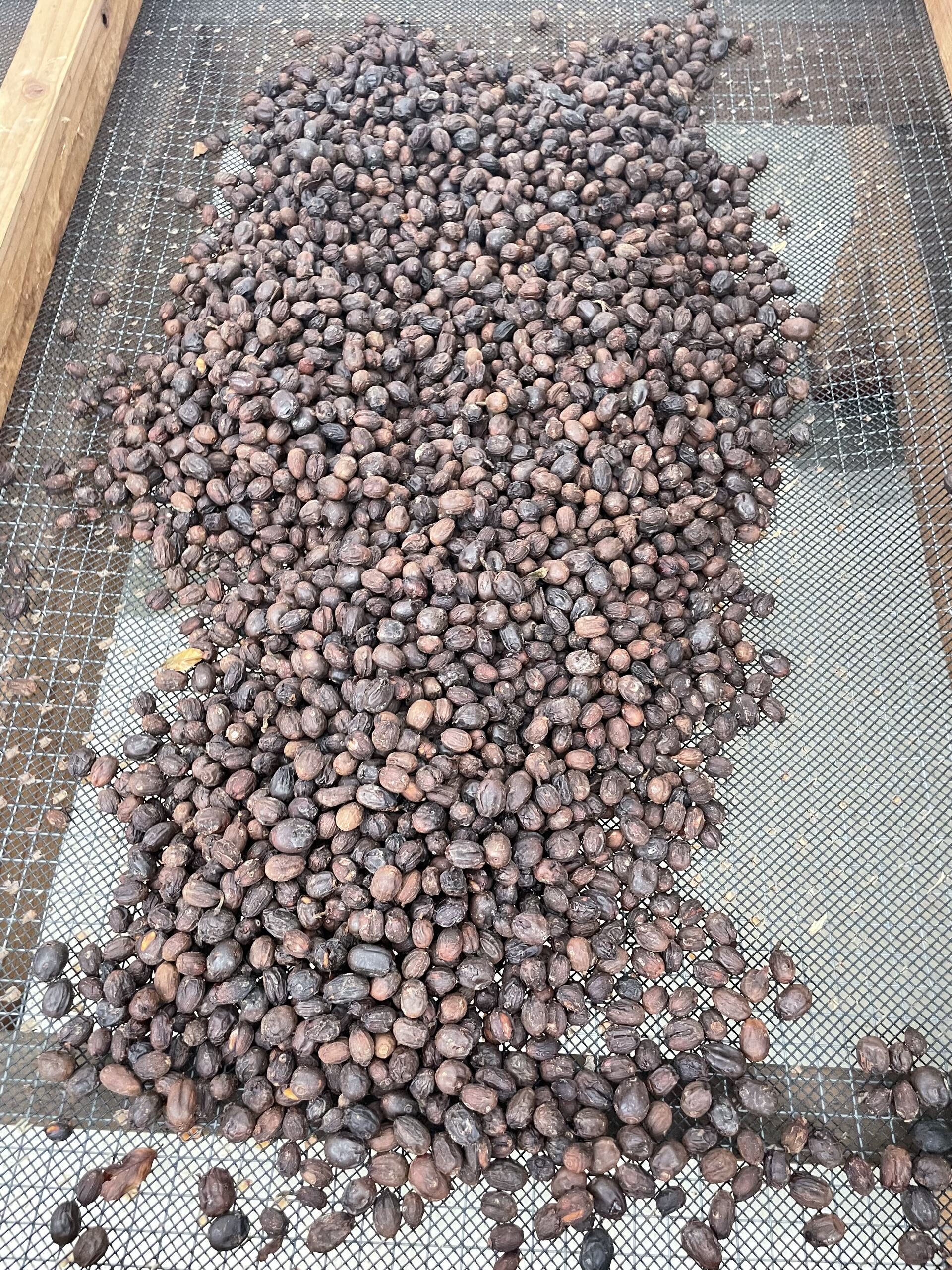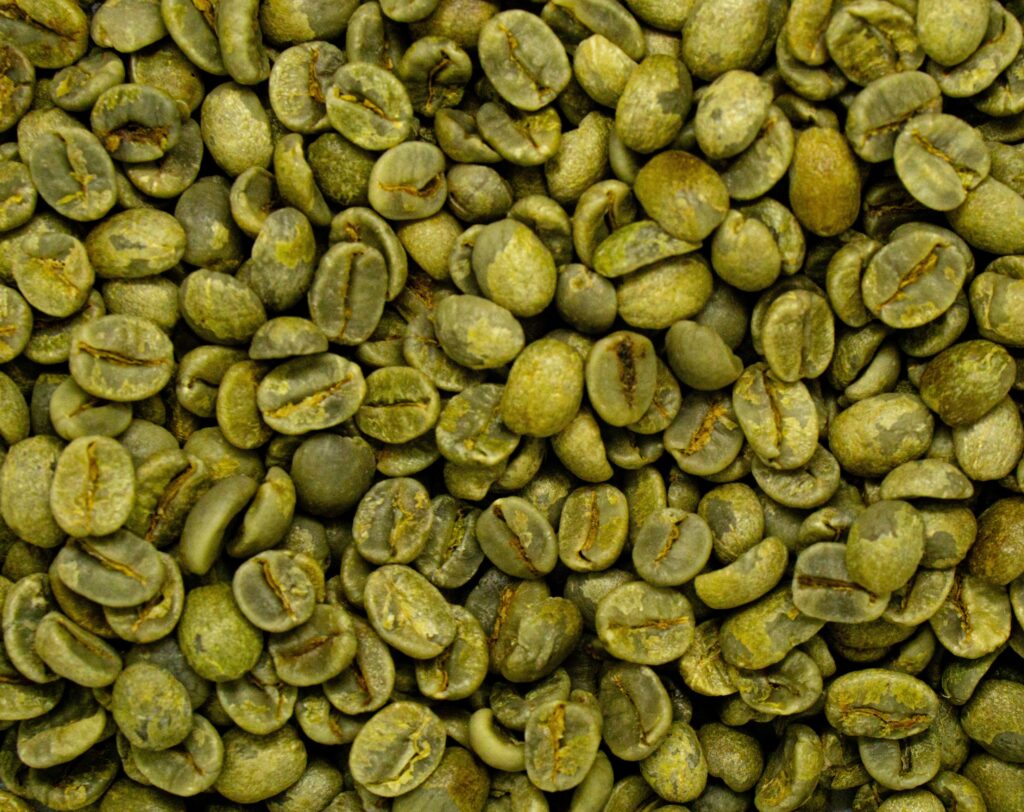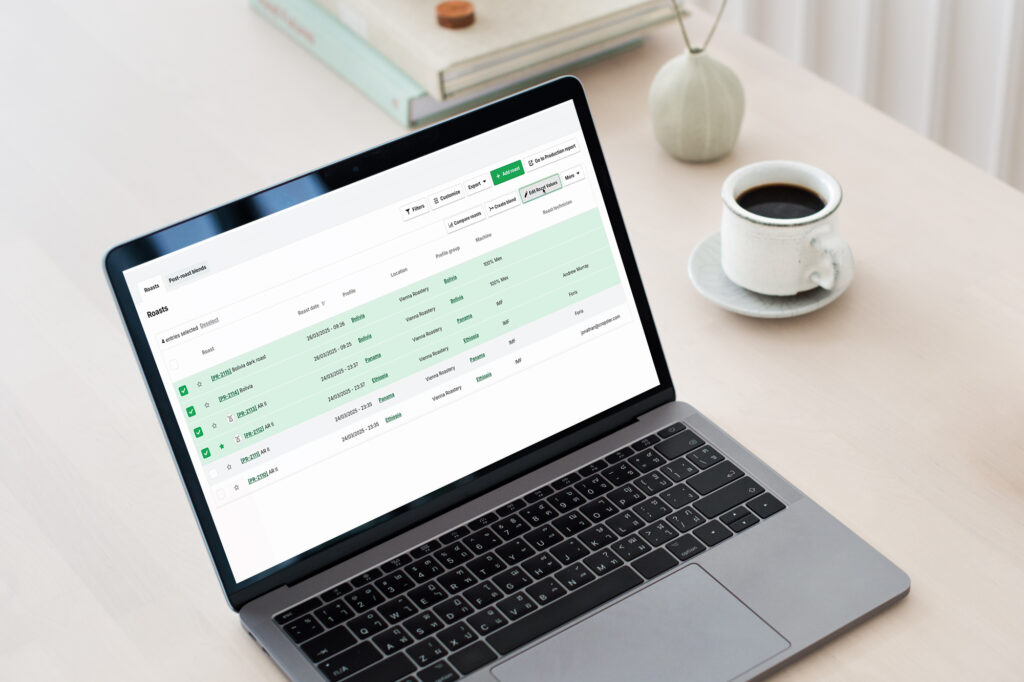Who is Frinj?
Farmer and agronomist Jay Ruskey has a 30 year history producing tropical fruits from his farm Good Land Organics. Based on this experience, he hypothesized that coffee could be a viable crop in California, far from the tropics where it is typically produced. Ruskey recognized that the Southern California climate in Santa Barbara (where it is also known as the avocado growing belt) held promise for cultivating high-quality coffee, and he planted his first 40 coffee plants in 2002, intercropped with the avocado trees already established on the farm. Currently on his farm coffee coexists with passion fruit, dragon fruit, avocado, papaya, banana, and other crops which complement one another in a model of farming called Layered Agricultural systems.
Jay quickly realized that producing high-quality specialty coffee in California was going to take extra care to ensure the plants receive the required nutrients and water, care that extends through processing and fermentation, drying, milling, and roasting. Over the intervening decades Jay added experts to his team of advisors, invested in equipment and infrastructure, and ultimately began producing coffees of exceptional quality at Good Land Organics, and through a network of partner farms that make up FRINJ.
There are approximately 70 farms comprising FRINJ, ranging from Goleta California North of Santa Barbara (latitude 34.4° N) to communities just north of San Diego California (latitude 30° N). FRINJ farmers produce over 14 varieties of coffee, including Gesha, Laurina, Caturra, Cataui, Pacamara, and more. FRINJ Coffee also has a plant breeding program to help bring new and improved varieties of coffee to the industry.
FRINJ markets green coffee to many of the most quality-focused roasters around the world, and has found markets for the coffee in the United States, Japan, and elsewhere. They also roast and sell directly to consumers online at FRINJcoffee.com and at farm tours also found at FRINJcoffee.com.
Cropster and Frinj
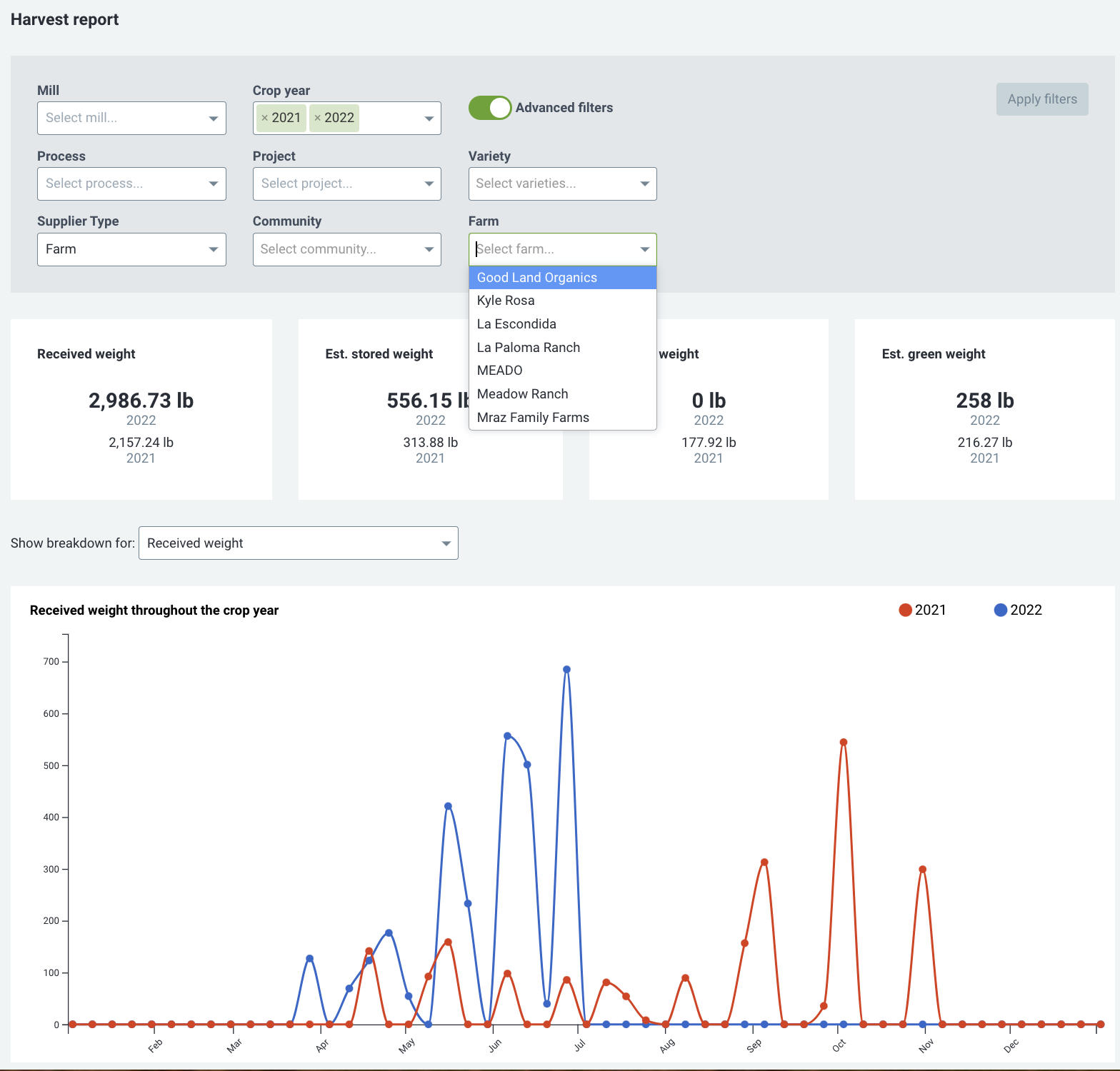
Comparing harvest years.
FRINJ has a lot of data to manage, with over 70 farms producing coffee, unexplored terroirs throughout Southern California, 15 varieties, multiple processing styles, and a 10 to 12 month growing season and an extended harvest period. They produce small lots of highly traceable coffees. FRINJ shares a lot of data with each farmer, including processing factors and green coffee yields, quality reports, and sales information. As a company producing an entirely new category of California Coffee, they also rely on a group of advisors from the specialty coffee industry, agricultural cooperative experts, experts in plant genomics, and others. Each of these advisors needs unique information, and with coffee cuppers and quality advisors are contributing their own data to the FRINJ network.
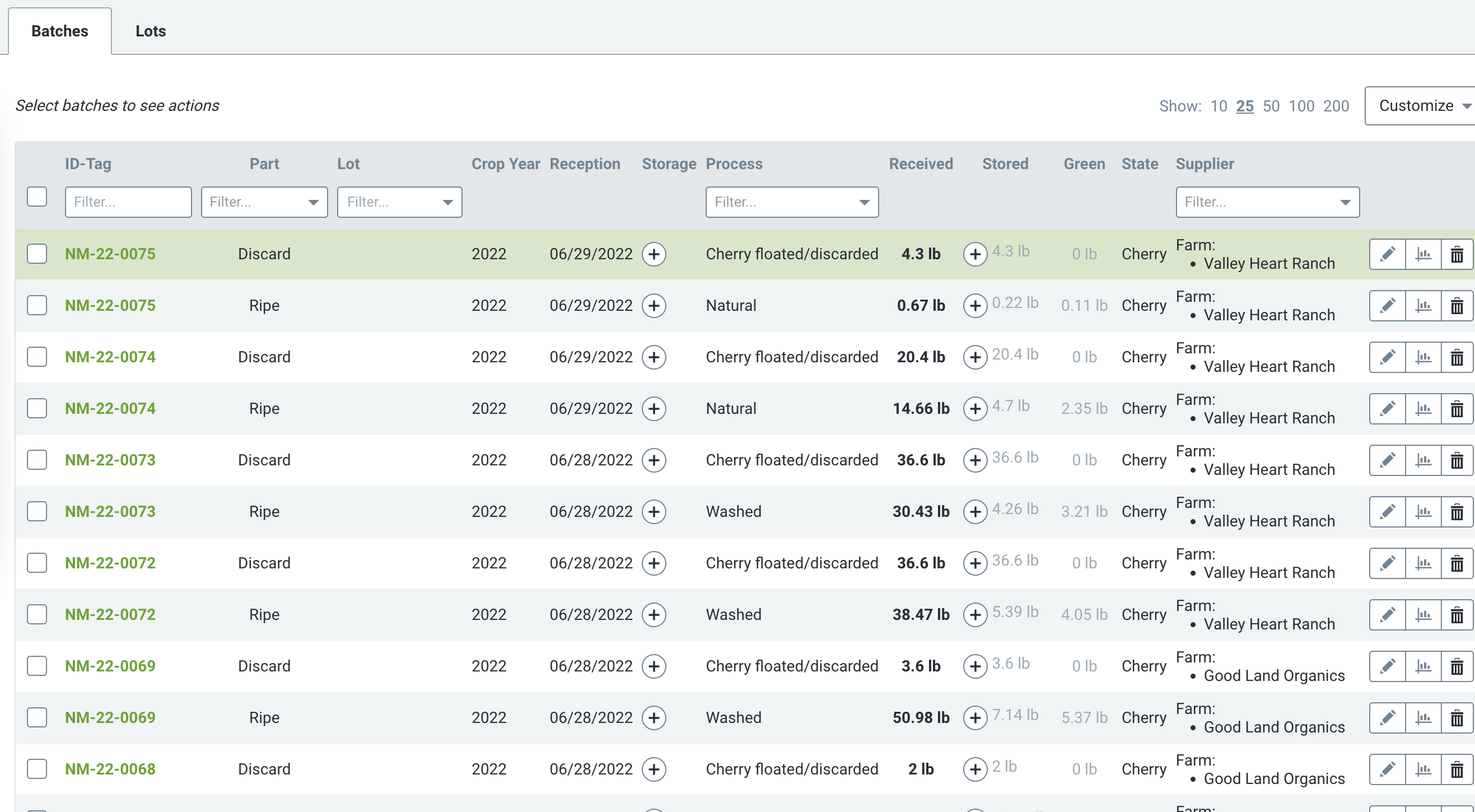
Cropster Origin tracking delivery of cherries for processing.
Ultimately, all of this data serves to keep FRINJ farmers informed about the success of their crops. FRINJ green coffee customers, who are some of the most quality focused roasters in the world, often require full production transparency to help tell the story of these incredibly rare and unique coffees.
“We are so excited to be implementing Cropster Origin at FRINJ to continue to improve our quality control. Origin allows us to record cherry data from all of our growers, enter our processing methods, and continue to watch each lot as it enters each phase of the process. This allows us to report all of our data on one platform & then be able to share that with our growers to better understand their yields and for future quality,” says FRINJ head roaster Paige Gesualdo.
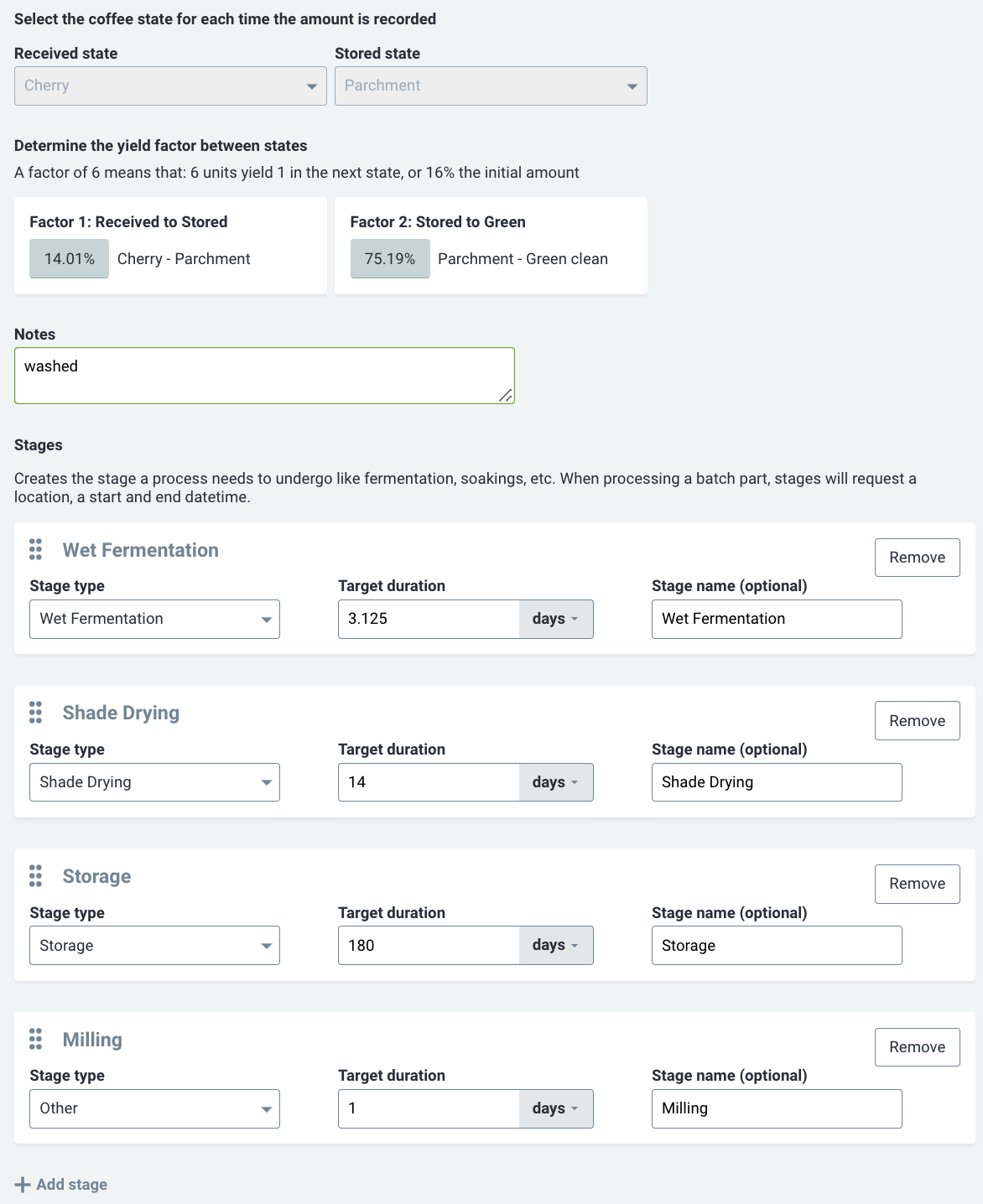
Tracking processing steps for washed coffees.
With Cropster Origin, FRINJ tracks daily deliveries by farm and by variety. The production team tracks floaters / discards versus ripe cherries. They track which lots are processed as fruit dried naturals versus parchment dried washed coffees. These details allow FRINJ to craft high-quality micro-lots for their customers, develop unique blended lots with full traceability, and understand the impact of terroir, variety, agricultural processes, and processing on the final cup score. Data also helps them to establish protocols throughout the business, enabling them to repeat what works, train staff to follow best practices, and avoid costly mistakes in the future.
FRINJ is also a roastery, selling directly to consumers. As a roastery, they have unique challenges. With so many micro-lots of coffees grown at low-elevation but high-latitude, the coffees are often quite challenging to roast. Paige Gesualdo, the head roaster, develops custom roast profiles for each specific variety, sometimes even having unique profiles for each member farm, always with the goal of showcasing the unique characteristics of each coffee. Cropster Roast is an essential part of their operation, tracking multiple profiles for small lots of exceptionally distinct coffees.
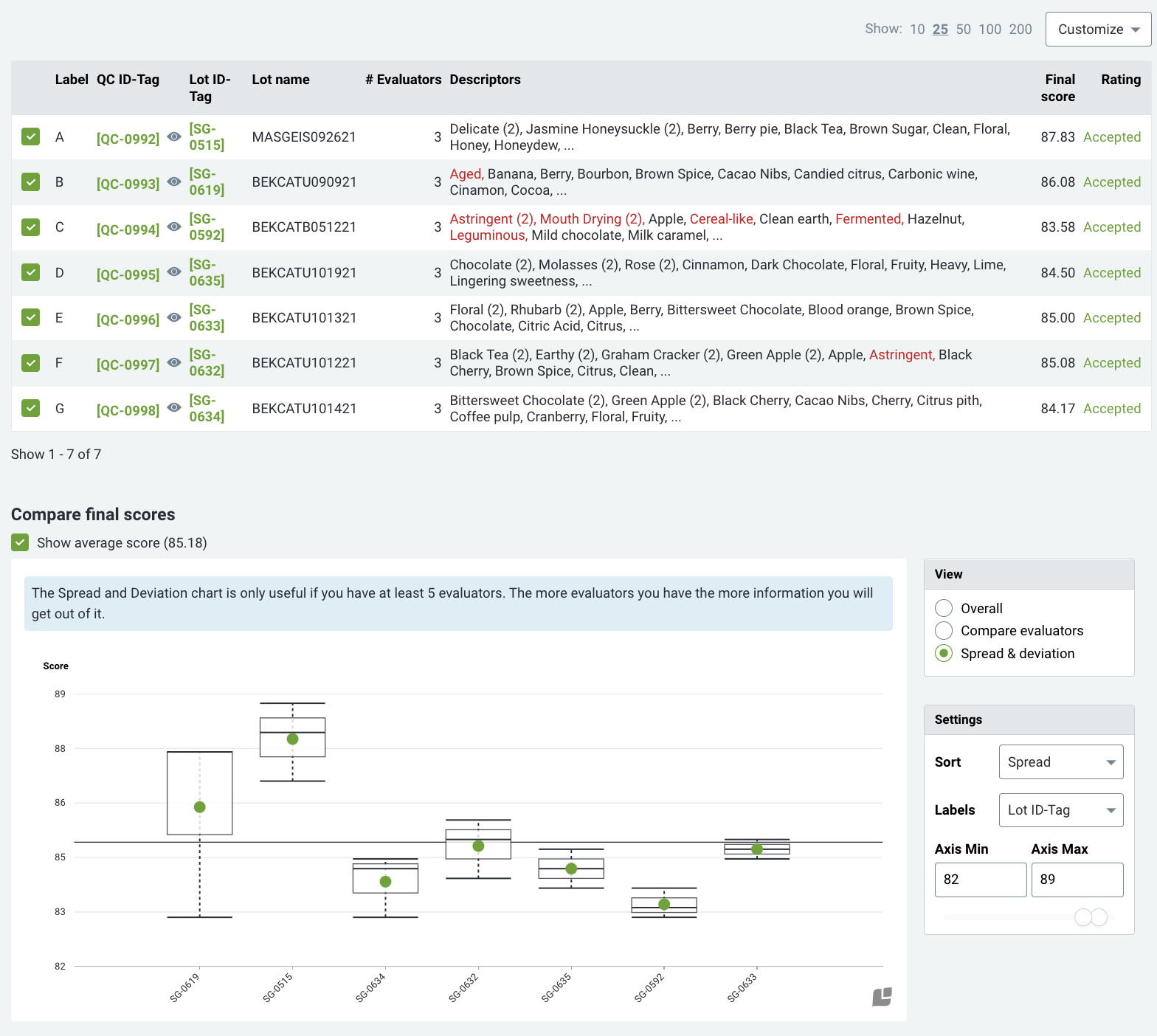
Quality Compare.
“Cropster has made a massive impact on how we implement quality control not only while roasting but managing our inventory,” reports Paige Gesualdo, head roaster at FRINJ. “It allows me to not only follow the roasts in production but helps me organize our lots since we have a lot of micro & nano lots. It allows us to put in protocols for cupping and roasting that makes it easier for our team to follow.“
Overall Benefits
Cropster enables FRINJ to deliver excellence to all of their stakeholders. Farmers receive full-transparency about the coffees they deliver, FRINJ staff have the tools to understand the nuances of coffee production and roasting and duplicate best practices. Ultimately, Cropster ensures that FRINJ customers receive the best and most consistent coffee possible. This is true for roasters who are purchasing larger lots of green coffee or consumers buying roasted coffee.
